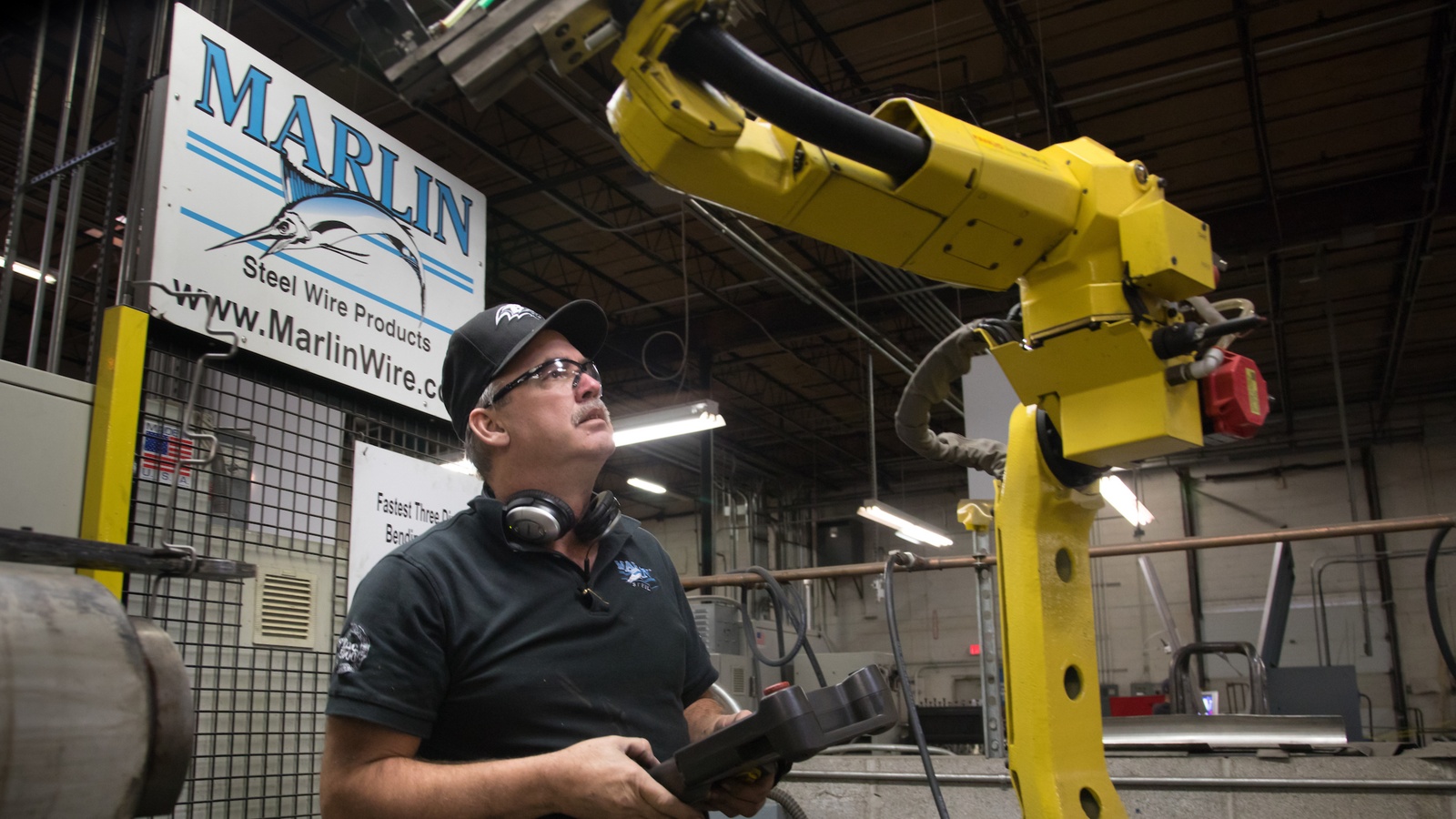How a Tax Change Will Strangle a Small Manufacturer’s R&D

Marlin Steel Wire Products spent its first 30 years making bagel baskets. When Drew Greenblatt bought the custom wire and metal fabrication company in 1998, he thought it would be making bagel baskets for the next 30 years as well—but soon, international competition changed the math.
“Suddenly, China started manufacturing bagel baskets and shipping them to New York City for cheaper than I could get the steel,” said Greenblatt, Marlin’s president and owner. “But then, we got a phone call from an engineer at Boeing who needed an innovative, customizable basket. And that was the eureka moment.”
The shift: Greenblatt recognized that innovation would help him outcompete foreign companies that could manufacture products more cheaply.
- “We realized we couldn’t thrive in a commodities market,” said Greenblatt. “We had to come up with novel ways to make a basket so that it would make no financial sense to buy from China or Mexico.”
- “We wanted to be able to say to buyers, you must buy from the American innovative company, because we’re coming up with such slick ideas that our product blows the competition away.”
The growth: Today, Marlin Steel is nearly 30 times larger than it was when Greenblatt bought it and heavily invested in research and development.
- “Today, Marlin is 15% degreed mechanical engineers,” said Greenblatt. “We have chemical engineers. We’re coming up with the most innovative racks and systems out there.”
- “People are showing us their operations and asking us to reverse-engineer solutions that will work for them. And we’re doing it.”
However . . . A recent tax change threatens to throttle the company’s progress. Until about a year ago, businesses could deduct 100% of their R&D costs in the same year they incurred those expenses.
- But since last year, a tax policy change now requires businesses to spread their R&D deductions out over a period of five years, making it much more expensive to invest in innovation.
The impact: “Our taxes will be $600,000 higher than they should have been this year—we’ll pay four and a half times more on taxes,” said Greenblatt.
- “What that means is that it makes sense for us not to hire six more engineers. Not to buy three more press brakes [machines for bending metal parts] or hire people to work them. It’s incredibly shortsighted, a horrible policy screwup, and the ripple effects are massive.”
The scope: Greenblatt also emphasizes that the tax change will harm many small businesses.
- “People tend to focus on the bigger companies and how it will hurt them—and it will hurt them—but it will also hurt the little guy,” said Greenblatt. “And the little guy is the job creator in America.”
The last word: “American innovation—that’s our secret sauce,” said Greenblatt. “That’s how we’re going to grow jobs and pay people well and give good benefits and steady employment without layoffs. That’s how we’re going to beat a recession. We need to have the coolest, most innovative products in the world. For us, innovation is key.”
